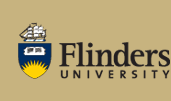
The Master of Engineering (Biomedical) is a 72-unit program offered by the School of Computer Science, Engineering and Mathematics, within the Faculty of Science and Engineering.
The course articulates with the Graduate Certificate in Engineering (Biomedical) and the Graduate Diploma in Engineering (Biomedical), and the sequentially developed topics allow progression through the three awards.
Candidates who have completed either of these courses are awarded credit for related topics.
Applicants normally must hold an approved undergraduate Engineering degree with appropriate electronic content, or equivalent qualification from an approved tertiary institution. Some basic knowledge of biology and chemistry will be assumed. An applicant who has not previously studied electronics may be required to undertake appropriate bridging studies.
The Faculty Board may, under certain circumstances and subject to specific conditions, admit others who can show evidence of fitness for candidature.
Students who complete the Graduate Certificate in Engineering (Biomedical) and are subsequently admitted to the Masters degree will be awarded 18 units of credit. Students who complete the Graduate Diploma in Engineering (Biomedical) and are subsequently admitted to the Masters degree will be awarded 36 units of credit.
Students with relevant professional work experience in a Biomedical Engineering related profession (including substantial and high level involvement in research or technical aspects relevant to biomedical engineering) may be granted credit up to a maximum of 18 units (ie. credit towards the Graduate Certificate component of the award).
Students who have completed an Australian University Engineering (four year or longer) degree in Biomedical and Electronic Engineering with honours may be granted credit up to a maximum of 36 units.
Students who complete the Flinders University Bachelor of Engineering (Biomedical and Electronics) or the Bachelor of Engineering (Biomedical) with Honours may receive up to 36 units of credit towards the Masters degree, and may complete both programs in 5 years or the equivalent part-time.
The course has been designed to provide graduates with:
The course provides the foundations that will underpin ongoing professional development, preparing graduates for further study or for a career in an engineering related field or in other areas where the range of skills and knowledge acquired is needed or desirable.
On completion of the award, students will be able to:
To qualify for the Master of Engineering (Biomedical), a student must complete 72 units with a grade of P or NGP or better in each topic, according to the program of study below.
36 units comprising:
ENGR4742 Standards, Ethics and Compliance (4.5 units)
ENGR4781 Innovation in Medical Devices (4.5 units)
ENGR8711 Engineering Design GE (4.5 units)
ENGR8732 Biomechanics GE (4.5 units)
ENGR8741 Physiological Measurement GE (4.5 units)
ENGR8742 Biomedical Instrumentation GE (4.5 units)
MMED8931 Human Physiology GE (4.5 units)
MMED8932 Integrative Human Physiology GE (4.5 units)
18 units selected from:
ENGR5700 Masters Thesis (18 units) OR
ENGR5700A Masters Thesis (4.5/18 units) AND
ENGR5700B Masters Thesis (4.5/18 units) AND
ENGR5700C Masters Thesis (4.5/18 units) AND
ENGR5700D Masters Thesis (4.5/18 units)
plus 18 units of CSEM option topics.
CSEM option topics must be selected from ,,file_type="pdf",file_name="Table A.pdf, and must be chosen from those labelled as biomedical (Group B).
CRICOS Provider: 00114A | Updated: 08 Sep, 2010